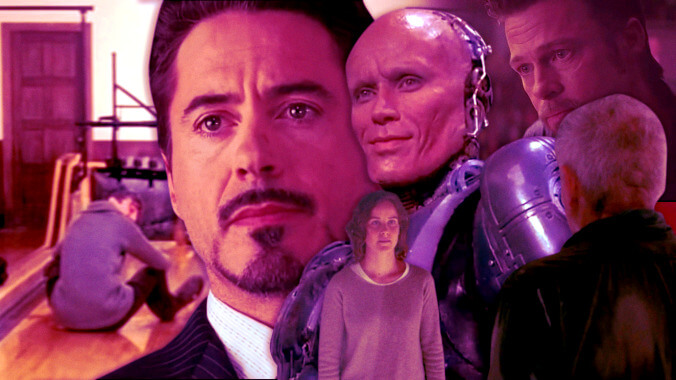What is your favorite last line in a movie?
From Tony Stark's declaration at the end of Iron Man, to Blade Runner 2049's contemplative closer

Famous last words. From left: There Will Be Blood, Iron Man, RoboCop, Killing Them Softly, Blade Runner 2049 (Screenshots: YouTube) Graphic: Allison Corr
This week’s question comes from associate editor Laura Adamczyk:
What is your favorite last line in a movie?
SPOILERS AHEAD (obviously).

 Keep scrolling for more great stories from The A.V. Club.
Keep scrolling for more great stories from The A.V. Club.